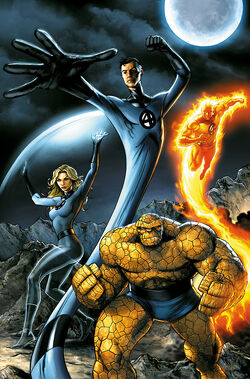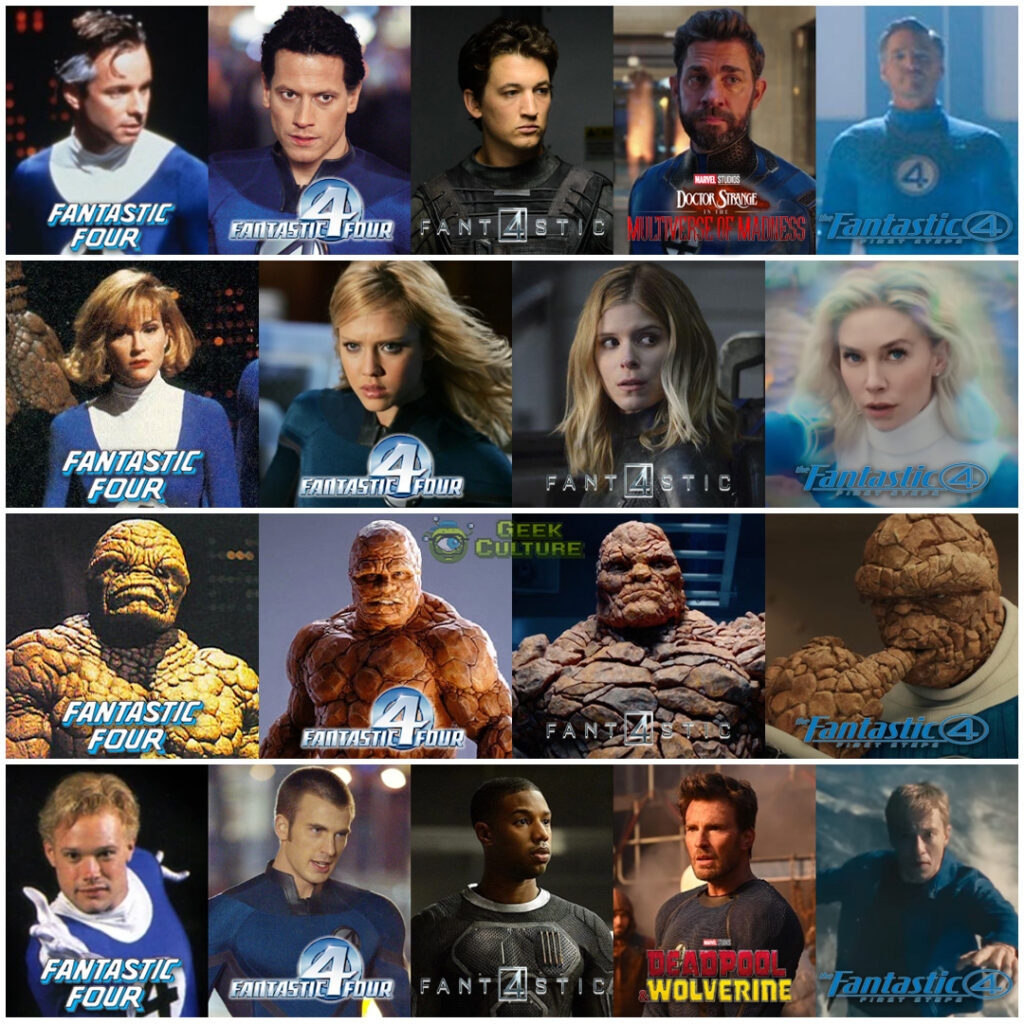The Marvel Cinematic Universe (MCU) has long been a cultural juggernaut, weaving tales of heroism, sacrifice, and spectacle that captivate audiences worldwide. Among its most anticipated projects is Fantastic Four: The First Steps, a reboot of Marvel’s first family, set to release in July 2025. However, recent discussions surrounding the film, sparked by a YouTube video titled “Fantastic Four Has Apparently Gone ‘Woke’ Now” (https://www.youtube.com/watch?v=fZYjTTSAvVM), have ignited a firestorm of debate. The video, posted by a prominent pop culture commentator, alleges that the film is embracing progressive ideologies, particularly in its approach to gender dynamics and character portrayals. This claim, echoed across social media platforms like X, raises questions about the balance between artistic evolution and audience expectations in superhero cinema. This article explores the controversy, the film’s reported changes, and the broader implications for the MCU.
The Allegations: A “Woke” Fantastic Four?
The YouTube video, which has garnered significant attention since its posting, centers on interviews with the cast of Fantastic Four: The First Steps. Notably, Joseph Quinn, who plays Johnny Storm (the Human Torch), commented on his character’s reimagining: “He was branded as this womanizing, devil-may-care guy, but is that sexy these days? I don’t think so. This Johnny is less callous with other people’s feelings.” This statement, as highlighted in a Variety post on X, has been interpreted by some as a deliberate shift away from the character’s traditional playboy persona toward a more sensitive, emotionally aware iteration.
The video further cites reports from industry insiders and fan reactions on X, suggesting that the film explores “gender politics” by empowering female characters like Sue Storm (Invisible Woman, played by Vanessa Kirby) and altering the traditionally masculine traits of Reed Richards (Mr. Fantastic, played by Pedro Pascal) and Ben Grimm (The Thing, played by Ebon Moss-Bachrach). Posts on X have been particularly vocal, with users like @Mikelom28 claiming the film “emasculates Reed, neuters Johnny, and turns Sue into Mary Jane,” while @Vara_Dark asserts it “swaps masculinity for sensitivity.” These sentiments, while not universally shared, reflect a growing concern among some fans that the film is prioritizing progressive ideals over fidelity to the source material.
Contextualizing the Changes

To understand the controversy, it’s essential to examine the Fantastic Four’s history. Created by Stan Lee and Jack Kirby in 1961, the team—comprising Reed Richards, Sue Storm, Johnny Storm, and Ben Grimm—ushered in Marvel’s grounded, character-driven storytelling. Reed was the archetypal brilliant scientist, Sue the nurturing yet powerful teammate, Johnny the brash hothead, and Ben the gruff everyman. Over decades, their portrayals evolved, with Sue, in particular, gaining more agency in modern comics as a scientist and leader, moving beyond her early “damsel” role.
The MCU’s reboot, directed by Matt Shakman, is set in the 1960s, a period ripe for exploring social dynamics. Reports suggest the film draws inspiration from the era’s cultural shifts, including the rise of second-wave feminism, which could explain the emphasis on Sue Storm’s empowerment. Kirby’s casting and her comments about Sue being a “formidable presence” align with this direction. Similarly, Quinn’s remarks about Johnny reflect a broader cultural reevaluation of masculinity, where traits like emotional intelligence are increasingly valued over traditional bravado. These changes, while controversial, are not without precedent in the MCU, which has diversified its heroes in films like Black Panther and Captain Marvel.
However, the term “woke”—often used pejoratively to describe perceived overreaches in progressive storytelling—has become a lightning rod. The YouTube video argues that the film’s alleged focus on gender politics risks alienating fans who cherish the Fantastic Four’s classic dynamics. Posts on X amplify this, with @YellowFlashGuy warning of a “Fantastic FLOP” due to these changes. Yet, others argue that updating characters to reflect contemporary values is necessary for relevance. The debate mirrors broader tensions in pop culture, where franchises like Star Wars and Ghostbusters have faced similar critiques.
Fan Reactions and the Role of Social Media
Social media, particularly X, has been a crucible for this controversy. The platform’s real-time nature amplifies polarized opinions, with hashtags like #FantasticFour and #WokeMarvel trending in recent weeks. Some users, like @thatstarwarsgrl, have posted videos decrying the film’s direction, claiming it “tanked” due to its progressive leanings. Others, however, defend the reboot, arguing that the Fantastic Four’s essence lies in its adaptability. One X user wrote, “The FF have always been about family and growth. If Sue’s stronger or Johnny’s kinder, that’s not ‘woke’—it’s character development.”
Marvel’s Track Record and Creative Risks

Marvel’s history with reboots offers context for the current debate. The Fantastic Four have struggled on the big screen, with Fox’s 2005 and 2007 films criticized for their uneven tone and the 2015 Fant4stic widely panned for its disjointed narrative. The MCU’s acquisition of the property in 2019, following Disney’s purchase of Fox, raised hopes for a definitive adaptation. Yet, Marvel’s recent Phase 5 has faced scrutiny for perceived declines in quality, with films like Ant-Man and the Wasp: Quantumania underperforming. Some fans, as seen in X posts, fear that Fantastic Four could follow suit if it strays too far from its roots.
Still, Marvel has a track record of taking risks that pay off. Iron Man (2008) launched the MCU by casting Robert Downey Jr., then a controversial choice, as Tony Stark. Captain America: Civil War (2016) tackled political themes, and WandaVision (2021) experimented with form. The decision to reframe the Fantastic Four’s dynamics could be another calculated gamble, aiming to distinguish the reboot from past failures while appealing to younger, diverse audiences. Data from YouTube’s 2024 metrics, showing 2.7 billion monthly active users and a surge in female viewership, supports this strategy.
The Broader Cultural Implications
The Fantastic Four controversy reflects deeper societal fault lines. The term “woke,” originally rooted in activism, has become a catch-all for critiques of progressive media. This semantic shift complicates discussions about representation and storytelling. For some, empowering Sue Storm or softening Johnny Storm is a natural evolution; for others, it’s a betrayal of beloved characters. The YouTube video’s framing taps into this divide, presenting the reboot as a battleground in the culture wars.
Moreover, the backlash highlights the challenges of adapting legacy properties in an era of heightened scrutiny. Filmmakers must navigate fan expectations, corporate mandates, and social pressures. Marvel’s choice to set the film in the 1960s suggests an attempt to ground its themes historically, but as X posts indicate, not all fans are convinced. The inclusion of a female Silver Surfer, reported by some outlets, has further fueled debate, with @FixitFreddie541 lamenting the change as unnecessary.
Looking Ahead: Can Marvel Balance Innovation and Tradition?
As Fantastic Four: The First Steps approaches, Marvel faces a delicate balancing act. The film’s success will hinge on its ability to honor the team’s legacy while offering something fresh. Early footage, showcased at Comic-Con 2024, emphasized the 1960s aesthetic and the team’s familial bond, earning praise for its visual fidelity to Kirby’s art. However, the narrative’s handling of gender and character dynamics remains under wraps, leaving room for speculation.
The YouTube video and X posts underscore the passion of Marvel’s fanbase, but they also reveal the pitfalls of prejudgment. Without seeing the film, claims of it being “woke” or a “flop” are speculative. Marvel’s track record suggests it can weather criticism, but the studio must deliver a cohesive story to silence detractors. If Sue Storm’s empowerment or Johnny Storm’s sensitivity enhances the team’s dynamic, the changes could resonate widely. If not, Marvel risks further eroding fan trust.
Conclusion
The controversy surrounding Fantastic Four: The First Steps encapsulates the challenges of adapting iconic characters in a polarized cultural landscape. The YouTube video, while amplifying valid concerns, often sacrifices nuance for clicks, as do many X posts. Yet, the debate it has sparked is a testament to the Fantastic Four’s enduring relevance. Whether the reboot’s reported focus on gender politics elevates or undermines the story remains to be seen. For now, fans and critics alike await July 2025, when Marvel’s first family steps into the MCU spotlight. Will they soar or stumble? Only time will tell.




